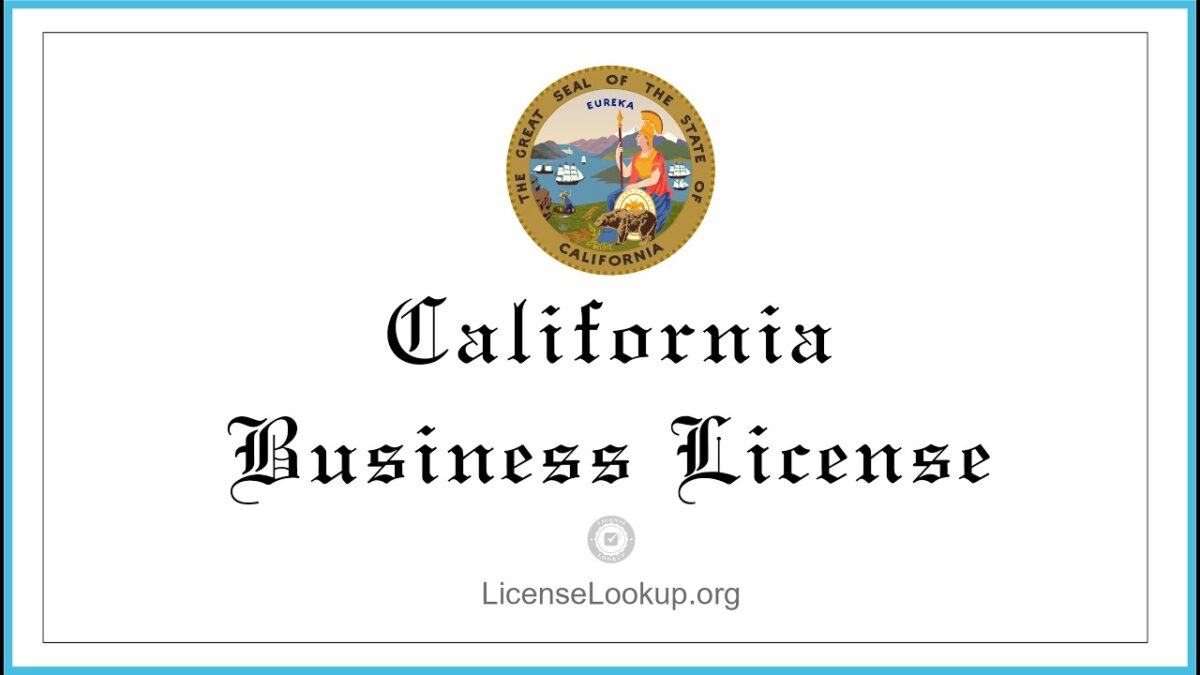Starting a Business License in California is an exciting venture. With its diverse economy and vibrant market, the state offers opportunities for entrepreneurs in nearly every industry. However, before you can officially launch your operations, one of the key legal steps is obtaining a business license in California. This guide provides an in-depth look at what a business license is, why it’s essential, and how to go about acquiring one in the Golden State.
What is a Business License in California?
A business license is an official permit issued by a government agency that allows you to legally operate your business within a specific jurisdiction. In California, the type of business license you’ll need depends on the nature of your business, your location, and the industry you operate in. For most businesses, securing the correct licenses is a legal requirement, and failure to do so can result in fines or even the suspension of business activities.
California’s business licensing system is decentralized, which means that business licenses are often issued at the local level (city or county). Additionally, specific industries may require state-level or federal permits.
Why Do You Need a Business License in California?
Operating a business without a license is not only illegal, but it can also put your business at risk. Here’s why obtaining a business license in California is essential:
- Compliance with Local Laws: Each city and county in California has its own regulations. A business license ensures you are compliant with those rules.
- Tax Reporting: A business license allows local governments to track businesses for taxation purposes.
- Credibility: Having a license shows customers and clients that you are a legitimate and trustworthy business.
- Legal Protection: A license safeguards your business from legal liabilities that may arise from operating without proper authorization.
Types of Business Licenses in California
California has several types of business licenses and permits, depending on the type of business you are starting. Here’s an overview:
1. General Business License
Most businesses in California will require a general business license, which is issued by the city or county where your business is located. For instance, if you plan to operate in Los Angeles, you’ll need a business license from the City of Los Angeles.
2. Professional Licenses
Certain professions, such as real estate agents, doctors, and attorneys, require a professional license from the California Department of Consumer Affairs or other relevant state boards.
3. Industry-Specific Permits
Industries like food services, construction, and alcohol sales may require additional permits. For example:
- Restaurants must obtain a health permit from the local health department.
- Businesses selling alcohol need a liquor license from the California Department of Alcoholic Beverage Control (ABC).
4. Seller’s Permit
If your business involves selling tangible goods, you will need a seller’s permit from the California Department of Tax and Fee Administration (CDTFA). This permit allows you to collect and report sales tax.
5. Home-Based Business License
If you plan to operate a home-based business in California, you may still need a license or zoning clearance from your local city or county government.
Steps to Obtain a Business License in California
Here’s a step-by-step guide to help you secure a business license in California:
Step 1: Determine Your Business Structure
The first step is deciding on the legal structure of your business. Common structures include sole proprietorship, partnership, limited liability company (LLC), or corporation. This decision will impact your licensing requirements and tax obligations.
Step 2: Choose a Business Name
You’ll need a unique name for your business, particularly if you’re registering as an LLC or corporation. If your business operates under a name different from your legal name, you may also need a fictitious business name (DBA) filing.
Step 3: Identify the Licenses You Need
Research the specific licenses and permits required for your industry and location. You can use California’s CalGold Business Portal (www.calgold.ca.gov) to identify your licensing requirements.
Step 4: Register with Tax Authorities
If applicable, register for a seller’s permit with the CDTFA. Depending on your business structure, you may also need to apply for an Employer Identification Number (EIN) from the IRS for tax purposes.
Step 5: Apply for a Local Business License
Contact your city or county government to apply for a general business license. This typically involves:
- Completing an application form
- Paying a fee (fees vary by location and business type)
- Providing necessary documentation, such as proof of zoning compliance or professional certifications
Step 6: Obtain Industry-Specific Permits
If your business falls into a regulated industry, apply for any additional permits required at the state or federal level.
Step 7: Renew Your License Annually
In most cases, a business license in California must be renewed annually. Be sure to stay on top of renewal deadlines to avoid penalties.
Costs Associated with a Business License in California
The cost of obtaining a business license in California varies depending on your location, business type, and the number of permits required. Here’s what you can expect:
- City/County Business License Fees: These can range from $25 to several hundred dollars annually. Some cities base the fee on your annual gross receipts.
- Seller’s Permit: Generally free, though a security deposit may be required.
- Industry-Specific Permits: Costs vary widely based on the permit type. For example, a liquor license can cost thousands of dollars.
Frequently Asked Questions About Business Licenses in California
1. Do all businesses in California need a license?
Yes, nearly all businesses operating in California need a general business license. However, requirements may vary by location and industry.
2. Can I operate my business from home?
Yes, but you may need a home occupation permit in addition to a general business license. Local zoning laws will determine what types of businesses can operate from residential properties.
3. How long does it take to get a business license?
The processing time varies by city or county, but it typically takes 1-4 weeks.
4. What happens if I don’t get a business license in California?
Operating without a license can result in fines, legal penalties, and the forced closure of your business.
Conclusion
Obtaining a business license in California is a crucial step in launching your venture and ensuring legal compliance. While the process may seem daunting at first, it becomes much simpler once you understand the requirements for your industry and location. By following the steps outlined in this guide, you’ll be well on your way to running a legitimate and successful business in California.
Remember to stay informed about any updates to local regulations and renew your license annually to keep your business in good standing. With the proper licenses in place, you can focus on growing your business and achieving your entrepreneurial goals.



